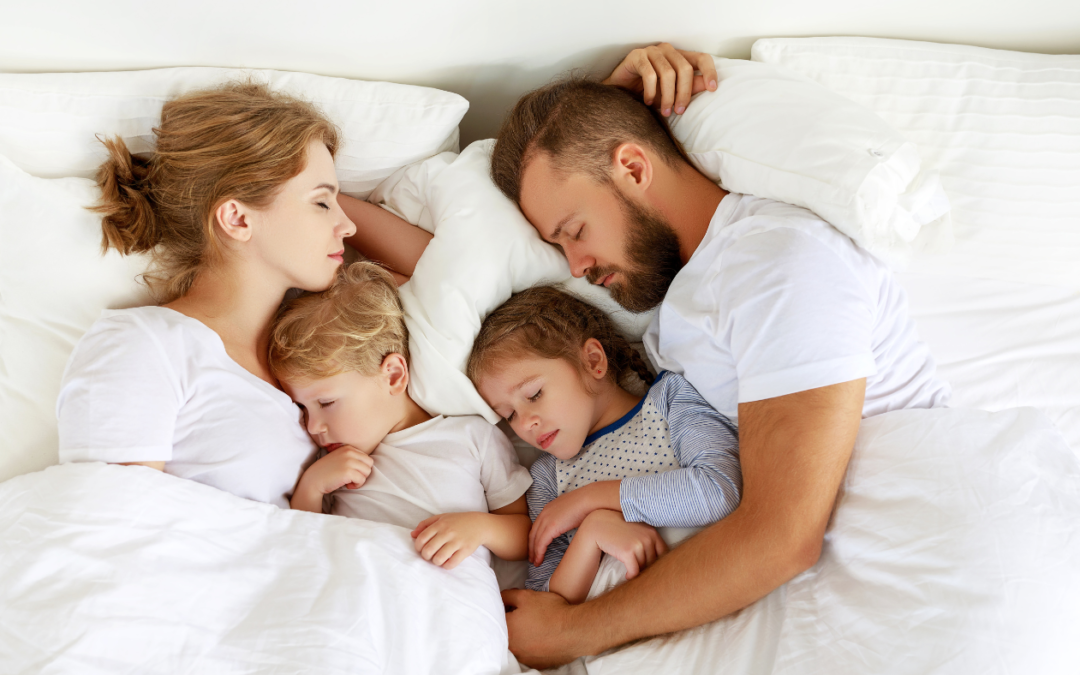As a parent, it’s easy to fall into the trap of prioritising your baby or child’s sleep before your own.
After all, there are often sleepless nights, late-night feeds and early mornings that come with the
territory of being a parent. However, it’s important to remember that healthy sleep habits aren’t just
important for babies and children, they’re essential for adults too. In fact, sleep deprivation can have
a significant impact on your overall health and wellbeing. In this article, we’ll delve into why healthy
sleep habits matter and how you can take steps to prioritise your rest.
Sleep is one of the most important pillars of health, and it’s essential for both physical and mental
health. When you don’t get enough sleep, it can impact your mood, cognitive abilities, and physical
health. For example, if you’re not getting enough sleep, you might experience symptoms like
headaches, fatigue, and brain fog. Over time, this can lead to more serious health issues, such as
obesity, diabetes, and heart disease. It can also impact your mental health, causing symptoms of
anxiety and depression.
So, how can you improve your sleep habits? Firstly, it’s important to establish a consistent sleep
routine. This means going to bed and waking up at the same time each day, even on weekends
around your children’s sleep patterns of course. Secondly, try to create a sleep-conducive
environment. This might involve investing in a quality mattress or blackout curtains to block out
light. You can also look into using sleep masks or sleep headphones to block out any light or noise
while your off duty.
Another important factor to consider is limiting your screen time before bed. The blue light emitted
from electronic devices can interfere with the body’s natural sleep-wake cycle, making it more
difficult to fall asleep. Experts recommend avoiding devices with screens for at least an hour before
bed. Instead, try reading a book or practicing relaxation techniques like deep breathing or
meditation.
In addition to the multitude of health benefits associated with maintaining healthy sleep patterns, it
is crucial to acknowledge the profound impact adequate rest has on our parenting abilities. When
we prioritise our own sleep, we become more adept at navigating the daily trials and responsibilities
of raising children.
First and foremost, being well-rested provides us with the physical vitality necessary to keep pace
with our children. Parenting often demands considerable physical exertion, be it engaging in
playtime activities at the playground, chasing them around the house, or carrying them when they
grow weary. Insufficient sleep depletes our energy levels, hindering our ability to wholeheartedly
interact with our children or match their boundless enthusiasm.
Moreover, obtaining sufficient rest profoundly influences our mental and emotional well-being.
Sleep deprivation can lead to heightened stress, irritability, and mood swings, making it arduous to respond to our children’s needs with patience and empathy. Conversely, when we prioritise sleep,
we are more inclined to approach parenting with a composed and serene mindset, enabling us to
handle challenging situations effectively and be emotionally present for our children.
Additionally, ample sleep augments our cognitive capacities. It enhances our concentration,
decision-making abilities, and problem-solving skills—all of which are pivotal in parenting. By
ensuring we are well-rested, we can approach parental responsibilities with a lucid and focused
mindset, enabling us to make sound choices for our children and offer them the guidance they
require.
Lastly, tending to our own sleep requirements sets a positive example for our children. Observing us
prioritise and value our own rest teaches them the significance of self-care and the importance of
establishing healthy sleep habits early on. By exemplifying good sleep practices, we instil in them an
understanding that sleep is vital for overall well-being.

